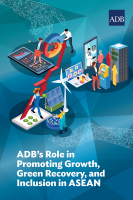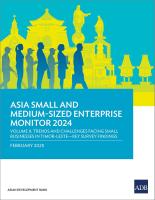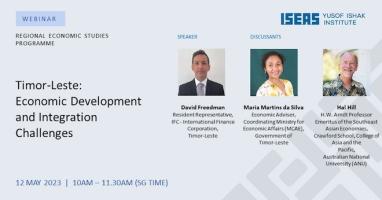The signing of the Declaration on the Admission of Timor-Leste into ASEAN took place at the opening ceremony of the 47th ASEAN Summits and Related Summits on 26 October 2025 in Kuala Lumpur, Malaysia. Photo credit: ASEAN Secretariat.
Accession to ASEAN will unlock new opportunities in trade, investment, and private sector development.
Timor-Leste became the 11th member of the Association of Southeast Asian Nations (ASEAN) on 26 October 2025. The young nation applied to become a member of the regional bloc in 2011 and has since made major strides in building capacity and improving governance, policies, and infrastructure.
ASEAN membership is expected to open more opportunities for Timor-Leste and its people by expanding markets, attracting investments, mobilizing private financing and resources, facilitating trade, and improving access to capital, technology, and innovation. The country seeks to build a strong, prosperous, and resilient economy, shifting from a petroleum-funded public spending structure to private sector-led and sustainable growth.
ADB has been supporting Timor-Leste's efforts toward full ASEAN membership since 2012 through five technical assistance projects, providing strategic policy advice, and technical and knowledge support. In collaboration with the government, the ASEAN Secretariat, and other development partners, ADB supported the following five cornerstone initiatives:
- Timor-Leste ASEAN Mobilization Plan (TLAMP) and Critical Elements for Accession (both in 2019);
- ASEAN Economic Community Fact-Finding Mission (2022) and Adoption of ASEAN Accession Roadmap (2023);
- Timor-Leste Integrated Measurement of Progress, Action, and Transformation for Development (TL-IMPACT), which is designed to operationalize the Roadmap for Timor-Leste’s Full Membership in ASEAN and provides mechanisms for tracking progress and strategic frameworks to align national policies, address implementation challenges, and demonstrate the country’s readiness for regional integration (2024);
- strategic communications plan and support for a self-assessment report (2024); and
- support for compliance and negotiations, particularly ATIGA (ASEAN Trade in Goods Agreement) market access offers, and advisory and technical support for the government’s Core Negotiation Team.
ADB also conducted phased capacity building programs in collaboration with the government and ASEAN Secretariat since 2023 to equip ministries and line agencies with the tools and expertise needed to effectively engage in ASEAN negotiations and economic agreements. ADB has also launched parallel initiatives to increase private sector awareness and help the private sector prepare for opportunities arising from regional integration.
Last July, ADB President Masato Kanda pledged to expand ADB’s development cooperation in support of Timor-Leste’s national priorities during his first official visit to the country. In meetings with President José Ramos-Horta and acting Prime Minister Mariano Assanami Sabino, Mr. Kanda hailed the country’s progress toward ASEAN membership and reaffirmed ADB’s commitment to help unlock new opportunities for growth and prosperity. The visit highlighted ADB’s longstanding partnership with Timor-Leste, which has delivered investments in transport, water, energy, food and agriculture, and rural livelihoods since 2002.
ADB has an active project portfolio amounting to over $600 million (31.8% of GDP) in the country. This includes providing $135 million to finance upgrades to the Presidente Nicolau Lobato International Airport, which will more than double annual passenger capacity to over 400,000 by 2030, support regional connectivity, and help meet ASEAN standards for infrastructure and safety.
ADB is also providing transaction advisory services to promote public–private partnerships in several areas including the development of a solar power park, implementation of unique identification systems, and establishment of carbon credit markets.
“Timor-Leste’s accession to ASEAN is a major achievement that will strengthen confidence and drive sustainable, long-term economic growth by creating new opportunities in trade, investment, and private sector development,” said ADB Country Director for Timor-Leste Stefania Dina. “To fully benefit from regional integration, it is crucial to invest in human capital and infrastructure, enhance domestic resource mobilization, implement fiscal reforms to improve investment efficiency and productivity, and leverage long-term development finance.”
ADB is committed to continuing to provide capacity building, policy advice, and knowledge support to strengthen Timor-Leste’s integration into the ASEAN community.


